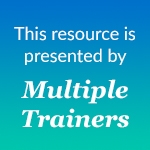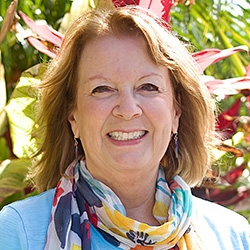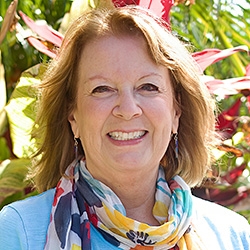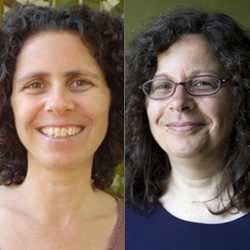
Search Results: universal human needs
-
-
One of the premises in NVC is that behind all behavior and expressions are Universal Human Needs as the deeper motivators. And one of the key distinctions in NVC is that between Needs and Strategies. Try Alan Seid's exercise called "Peeling the Layers of the Onion, " a process for uncovering these needs — the deeper motivations — that underlie words and behaviors we may find disturbing or puzzling.
-
For many, the word “need” is associated with lack, neediness, and scarcity. These associations are the opposite of the meaning of needs in Nonviolent Communication (NVC). In NVC, needs are the motivational energy of our innate wholeness and desire to grow, like the energy of a plant pushing it up through the soil and toward the sun.
-
In this compelling dialogue, veteran CNVC Certified Trainers, Susan Skye and Mary Mackenzie, discuss the intrinsic needs present in addictive behaviors, and how Nonviolent Communication aligns with the 12-step programs’ process for treating addiction.
-
Have you experienced inauthenticity, confusion and flatness in expressing empathy with others? Do you long to create a more natural quality of energy as you practice empathy? Or are you a trainer looking for guidance to teach workshop participants a more natural flow in their empathy practice?
-
Using real-life examples from class participants, Sylvia Haskvitz demonstrates the life-changing results of clarifying the needs underlying "shoulds." Some of the situations covered in this audio are:
- A grandmother shares how she was able to spend time with her grandchildren even when experiencing estrangement from her daughter
- A father examines how to repair a conversation with his daughter
- A woman explores her "should" thinking about her financial stability, her job and grief regarding her husband's death
- A woman connects to her deeper needs that arise with the statement "I should do my taxes"
- A woman perceives that she has conflicting needs for family harmony, relaxation and comfort when deciding whether to spend holiday time with stepchildren
If your life is fraught with "shoulds," this resource will support you in translating them into needs and, in some cases, to let them go entirely.
-
Trainer Tip: "I often hear people say that someone did something because of a need for control. Control is actually a strategy that is often confused with a need."
-
Ask the Trainer: "I'm practicing with 'transforming the pain of unmet needs into the beauty of the need.' In identifying my unmet needs, I come up with 'fairness.' However, fairness isn't on the needs list! I'm wondering what needs might be underneath 'fairness.'"
-
Ask the Trainer: "I've been feeling frustrated and angry quite a bit lately over very simple things. Can you help me get to the root of my hidden needs?"
-
Have you been nice? Well then you must be enjoying the reward: depression, intermittent explosiveness, job meaninglessness, ambiguous anxiety, low resentment and subtle self hate. The antidotes: honesty, passion and compassion.
-
Ask the Trainer: “I would love some clarity about the NVC perspective on the cause of our feelings. It seems to me that my needs may be met or not, but the cause of my painful feelings is my story around the situation.”
-
John Cunningham provides support to deepen your understanding and practice of NVC, including a sketch of the participatory and onlooker modes of consciousness, lists of feelings, needs and sample dialogues.
-
Ask the Trainer: "What guidance do you have for working with enemy images? Can you say some things about processes and/or exercises that can bring relief from this trap?"
-
Ask the Trainer: For many years I have been using crime and punishment (reward and consequences) to discipline because it was the only thing I knew. I knew deep in my heart it was alienating me...
-
Listen to this audio to learn the value of focusing on needs in an NVC model, either for the first time or as a refresher course. Living from a needs-consciousness creates abundance, clarity and choice. Using three examples from participants, Mary guides the group towards identifying and then connecting with the needs of both parties involved in each situation. It becomes clear very quickly that people choose different ways to support their needs; and many times they have the same needs in a given situation. When we understand this, we are able to create peace in our relationships and negotiations.
“Everything someone does or says is an attempt to meet a need,” says CNVC Certified Trainer Mary Mackenzie. This simple statement is a foundational understanding in Nonviolent Communication; once you gain skills at living in a “needs-consciousness” you will literally change your life and your perception of the world, and improve all of your relationships.
-
Connection requests focus on the quality of connection between people instead of on any particular strategy or solution. While the core motivation for a connection request may be connection with the other person, varied internal states and needs may help guide us toward different types of connection requests. Self-connection and understanding of our motivation in making a connection request can therefore greatly support our capacity for discovering and articulating what specifically we want from the other person that we believe may contribute to connection.
-
Watch this video with CNVC Certified Trainer Jim Manske to explore the practice of Self-Empathy through a different lens. Included is a unique four-step Self-Empathy process that culminates in a focus of gratitude.
-
Join Susan Skye in this hour-long audio recording to learn how to experience the NVC consciousness as an embodied, living practice of the 'Living Energy of Needs." This recording includes a supportive learning exercise and tips for expressing needs in a non-mechanical way.
"Over the years, I have noticed that people -- including trainers and facilitators -- use the words of the NVC process without full connection to life energy, often resulting in a failure to get to a full connection with actual life energy of these qualities that we have named "needs." This results in a mechanical communication model, rather than a true empathic connection. Join me in learning how to share NVC as an embodied, living practice of the 'Living Energy of Needs."
—Susan Skye -
In this recorded telecourse, John Kinyon, world renowned CNVC Certified Trainer, offers an overview and practice with four elements of empathy – presence, understanding/meaning, need language and deepening into needs.
-
Some of my core beliefs make experiencing gratitude difficult . For example, it’s difficult to celebrate others or myself when I think I have to prove my worth in order to be accepted. So much energy goes into proving myself, there’s little left for celebration.



















